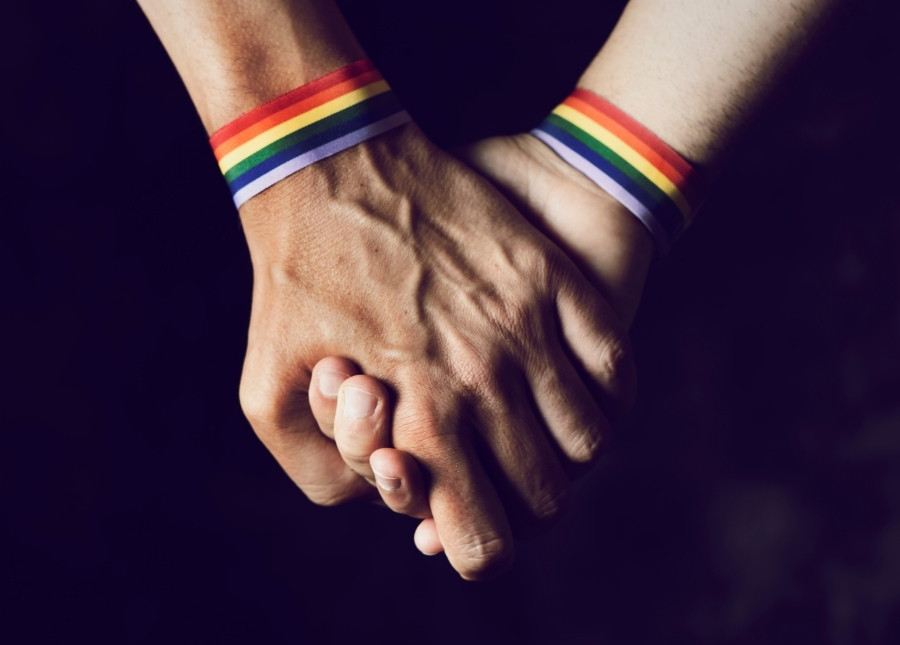Living an authentic and fully expressed life is one of the best ways to feel happy, healthy, and fulfilled. If you are contemplating coming out to the people in your life, know that you’re making a courageous and healthy choice for yourself.

But coming out can be intimidating and downright terrifying for some. How will people react? Will your friends and family accept you? Will you face consequences at work or your place of worship? It’s perfectly normal to have these fears and worries, but there are tangible steps you can take to make your landing softer.
Identify Your Inner Circle
It’s important to remember that you don’t have to come out to everyone in your life. This is a decision you can make for yourself, and you can choose who gets to know. As you think about coming out (and who you want to tell), visualize all the different people in your life: immediate family, extended family, friends, colleagues, neighbors, mentors, etc. Now imagine a small circle with successively larger circles expanding out. These circles represent the people in your life and how close you feel to them.
You’ll want to start with the circle of people who are closest to you and that you know, without a doubt, will accept you with open arms and love. When creating this inner circle you may initially include immediate family, but are they the safest people to tell first?
When creating your coming-out support, you might need to rethink your inner circle to include the people who will stand beside you, support you, and wrap you up in a pride flag if you ask. This circle could include parents, but others such as best friends might fall into this group. Take some time to think about who falls into these circles and how you can build a strong foundation to fortify and encourage you.
Build a Strong Foundation
Now that you’ve identified where different people fall in your circles, you’re ready to rethink these circles in terms of “Unconditional Support,” “Allies,” and the “Less Supportive.” Here’s how you can start:
- Gather Your Unconditional Supporters.
First tell the people in your life whom you know will celebrate and support you. This could include a family member, a best friend, a therapist, or an online community of friends. Choose the people you know will take your hand and walk with you on this journey.
A strong start will ease some of your worries and give you a safety net to fall back on during difficult times. Not everyone immediately has a circle of supporters. LGBTQIA+ support groups and community events are great places to find unconditional support and acceptance. - Find Your Allies.
Now that you have built a strong inner circle, it’s time to bring in the allies. These are people in your life whom you feel have the capacity to affirm and accept you, but they might need time to process the news. Think of this group as that cousin of yours from Cleveland that is pro-LGBTQIA+, but you are the first person to come out to them. They want to support you, but they need more time to process the news. Often this circle includes family, trusted co-workers, trusted teachers, and friends. This group will likely have more questions for you compared to the unconditional supporters. - Tell the Less Supportive (if you decide to tell them, that is).
You’ve now built two layers of support and have cemented your initial foundation so you can better manage telling people who may not be as supportive. This could be extended family, colleagues at work, or parents. And remember, you don’t have to tell this group if you don’t want to! Come out on your own terms, in your own way. But, if you do decide to tell them, know and trust that you have a loving safety net in place to help you through the difficult conversations and reactions. Go back to your unconditional supporters when you need advice, a sympathetic ear, or a hug.

Know That You Are Not Alone
There are many ways to approach coming out, and it’s a deeply personal experience. We know that the journey will be different for everyone, but it’s our hope that these tips can serve as building blocks along the way. However you choose to do it, know that you’re not alone, and there are resources online and in-person to support and hold you.
If you need extra support during this time (and beyond), Sunstone Counseling has a group of compassionate therapists dedicated to supporting the LGBTQIA+ community and their allies. Reach out today to find the right counselor to help you develop the strategies and skills to live your best and most authentic life. You’ve got this!
